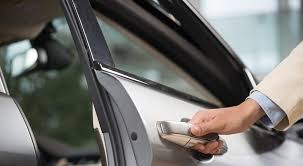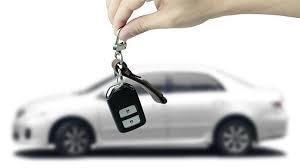Ways to Survive the Car Dealership
Having a new car can be a lot of fun, but many car buyers find the process of buying or leasing to be anything but enjoyable. For some, visiting a car dealer ranks right up there with getting a root canal, without the benefit of anesthesia.
Fortunately, there are several strategies you can use to survive the dealership. Most of them center around understanding the car-buying process and being prepared before you get near a salesperson. Consumers today have more information about vehicles and pricing than they ever have, and they can use that knowledge to get the right vehicle at a great price.
Whether you’re leasing or buying a new car or used car, making mistakes when car shopping can put you in the wrong vehicle, have you paying too much, or getting inappropriate financing for your situation. Those errors can cost you for years, so it is critical you do everything possible to get the right car and best car deal from the start.
A growing number of dealerships have embraced customer-friendly no-haggle sales methods and streamlined processes that show they respect consumers’ time. Many more, though, follow time-tested sales strategies to extract the most profit out of each sale by wearing down customers’ defenses. Knowing what you might face and how to respond is key to surviving the auto dealership.
Know the Car You Want
Before you think about heading to the car dealer, it’s crucial you have a rough idea about the car you want, what you can afford, and the features you need. You don’t have to have it narrowed down to one model or trim level, but pruning the field to only those models that fit your needs and budget can save you a tremendous amount of time.
Don’t Go Without Preapproved Financing
Perhaps the most important of the car buying tips you will find in this article is to have a pre-approved financing deal in place before you ever think of stepping foot on a car dealer’s lot. If you don’t have a pre-approved car loan from an independent bank, credit union, or other lender, you’ll be at the mercy of the dealer to find you financing. While they may be able to find you a great deal, they’ll have no incentive to do so unless you bring a competing offer.
Remember It Is a Business Transaction
A new or used car is one of the most expensive purchases we make. It’s easy to get emotionally invested in our dream car, but it is critical you check those emotions at the dealership’s door. Buying a car is a business transaction, nothing more, nothing less. Your goal is to get the lowest price possible, while the dealership’s task is to maximize the profit they make on the sale. Both stances are OK, as long as both you and the dealer act professionally, ethically, and within the bounds of the law.

There’s Strength in Numbers
Another great car-buying tip is to take a trusted and frugal friend with you to the dealership. You don’t want the friend who is always encouraging you to spend money on the latest fashion, you want the one that splits the dinner check to the penny. Give them the mission of making sure you don’t exceed your budget, buy extras you don’t need, and the authority to drag you away from a bad deal.
Know the Value of Your Trade
Buyers or lessees who are trading in their old vehicles need to have a rough idea of what their car is worth. There are a multitude of online tools that can help you find the price range you should expect from your old car. You simply enter the year, make, model, features, mileage, and condition, and the tools give you a range of values.
If you want a more specific number, you can visit another dealer or a used car superstore, such as CarMax, and ask for an offer to buy your car. There are several benefits in doing so. First, having an offer in hand gives the dealer you’re buying a car from a benchmark to meet or beat. Second, if you get a great offer (one that exceeds what you saw online), you can take the money and apply it to your down payment. Doing so has the great side-benefit of taking your trade-in value out of the mish-mash of numbers the salesperson will likely be using to confuse you.
In some states, you’re all but forced to trade your car in at the dealership you are buying from. Otherwise, you have to pay sales tax on the full purchase price of the new car, rather than on the purchase price minus the trade-in value.

Dealership Don’ts
Just because you’re young doesn’t mean you have to be an easy mark for some slick salesman when you head to the dealership. You may be new to car-buying but you can still be a savvy shopper and get the ride of your dreams at a good price.
To help you through the process, here’s a list of things you can do to avoid the pitfalls that have tripped up many a car buyer. Avoid these problems and you can get more car for your hard-earned buck. Contained in each “don’t” is a “do” that will help make your purchasing experience positive.
Don’t be a monthly payment buyer. Car salesmen assume that young buyers will have to take out a car loan to make a deal. So, when you sit down to negotiate, the first thing they’re likely to ask is, “What do you want your monthly payment to be?” The way to avoid having to answer this question is to get preapproved financing. This is valuable for several reasons. It forces you to confront any credit problems before you ever go near a dealership. It will also ensure that you get the best interest rate you deserve. And finally, it keeps negotiations simple. So, when they ask what kind of monthly payment you want, smile knowingly and say, “I’m a cash buyer — let’s just talk about the cost of the car.”
Don’t go to a dealership alone.There are safety and security in numbers, particularly for the first-time buyer. At the dealership there could easily be two salespeople pitching their car to you at once. Make sure you don’t get outnumbered. Take a friend or trusted family member along. But take someone you can count on to get you out of trouble. The last thing you want is a “friend” who will back the sales team and tell you to buy something you don’t want.
Don’t shop on the weekend unless you have to. Weekends are when everyone goes car shopping. But when there is a lot of foot traffic at the dealership, two things happen: The service isn’t great and the price of the cars stays high. If you don’t buy the car for their price, they reason, someone else here will. But on Monday the weekend seems awfully far away for most sales managers. They like to keep the cars moving off the lot. So, take a day off from work and enjoy a stress-free shopping experience that will save you money.

Never Buy the First Time You go to the Dealership
It is extremely important to follow this advice if you are negotiating in person. Once you sign the contract for your new car, it’s nearly impossible to get out of the deal. Find your lowest deal before you sign, not after. Don’t take the word of a salesman that other places can’t match their price. Every time I’ve heard that, I have proven them wrong. Make sure they see “The Folder” with research and quotes which ww will talk about in a second. Show them you did your homework and you know how to get the best deal possible. Once they know they can’t trick you, business will be conducted on your terms. Make sure The Folder has invoice pricing of all the options on your car, printed out from our car pricing section.
Having all of your ducks in a row will make your hunt for a good deal much easier. The salesman wants you to be distracted and unprepared so that you’ll be primed for their tricks. Start by gathering all of the items I recommend to bring with you.
How to Shop When The Dealer Doesn’t Have The Car You Want In Stock
If you visit a dealership and can’t find exactly what you want, you have three choices: you can get the dealer to special order what you want, they can find it at another dealership and get it for you, or you can make a choice out of their inventory. Let’s look at each option.
1. Ordering a car
The good dealers are always willing to order for you, the greedy ones don’t really care about doing this, they want that “today deal” and if they can’t have it, they’ll send you down the road. A couple of things you need to know about ordering are that it takes time-and the length of time can vary greatly depending on the automaker. Most can get the vehicle you want in six to eight weeks, but I have also seen it take 90 days or more depending on availability of the car you choose. The size of the dealership can have a lot to do with this too if it is a “hot” car. Also, with most automakers, the factory incentives that you receive are based on when you take delivery of the car, not when you order it, so keep that in mind. Sometimes that works in your favor, sometimes not.
2. Letting the dealer get the car from another dealership
Dealers trade amongst themselves constantly because as I said earlier, no dealer can stock everything. You need to know that if you choose to go this route, it will most likely cost you money, and sometimes a lot more. With most brands, the original dealer receives the holdback money from the factory and often does not pass that on to the dealer needing the car. In many cases, this is 3% of the window sticker price and can have a huge impact on your final pricing. Then there are transportation costs. Most dealers pay a service to transport the car from one dealership to the next and that can have an impact on your price. The farther away the car is, the more it costs to get it to you.
3. Buying from dealer’s current stock
This is the least expensive way to buy a car. The dealer has the most incentive to give you the best price. If you find a car that is close to what you had your heart set on, changes can be made. Let’s say you find the perfect car except it has a cloth interior and you wanted leather. Today, leather can easily be added to any vehicle. The same is true of navigation systems, moon roofs, DVD players, wheels, etc. If you decide to adapt the car to fit your desires, be sure to see what it will look like when finished. Ask if the item being added is factory or aftermarket, this can affect quality and warranty. Add-on items generally cost a little more than the same option from the factory but is often much cheaper than the dealer having to get the car from another dealer.